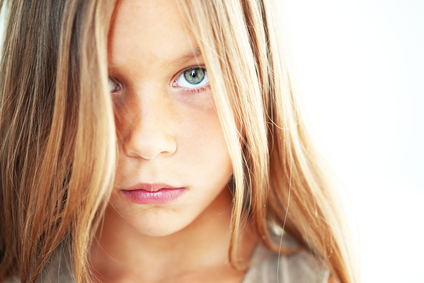Are natural disasters, such as hurricanes, tornados, and wildfires, more frequent today than in previous decades? Have man-made disasters and traumatic events, such as bridge collapses, school shootings, and war, become more prevalent recently? Has the world become a more frightening place for children than it was “back in the day?”

It is truly anyone’s guess as to whether traumatic events such as those listed above are more prevalent today than in previous decades, or whether, with our 24 hour news cycle we are simply being inundated with negative imagery and dialogue. What cannot be argued is that awareness of post-traumatic stress in children is on the rise, with approximately 1 in 10 people experiencing PTSD. (Post-Traumatic Stress Disorder (PTSD), Canadian Mental Health Association)
PTSD is caused by a psychologically traumatic event involving actual or threatened death. Such triggering events are called “stressors” and may be caused by violent personal assault or threat of death, as well as witnessing such violence or death being inflicted on another. They may be experienced alone, as in a personal assault, or while in a large group, such as a natural disaster or war.
How many children get PTSD?
Of this 10% of the population, a large number of course are children. From a report by the US Department of Veterans Affairs:
“Studies show that about 15-43% of girls and 14-43% of boys go through at least one trauma. Of those children and teens who have ha
d a trauma, 3-15% of girls and 1-6% of boys develop PTSD. Rates of PTSD are higher for certain types of trauma survivors.”
While it is impossible to derive exact figures of children who suffer from PTSD, the percentages above indicate the numbers are fairly large, while common sense dictates that, with the number of traumatic events reported with regularity in the news today, those numbers are surely growing.
With terrorist attacks being reported in formerly safe zones of commonly safe countries; increasingly violent and deadly conflicts from the Middle East to Africa; and with natural disasters across North America in the news lately, the stressors for children across the globe are manifest and powerful. A child need not directly experience the event to experience trauma and the after-effects it can cause. Simply seeing reports of devastating events, repeated ad infinitum, can lead to the symptoms of PTSD in children.
What are the symptoms of PTSD in children?
Generally speaking, symptoms will manifest within three months of the traumatic event, and may last anywhere from six months to a lifetime, if left untreated. The three most common symptoms of PTSD in children are listed below:
- Re-living the event – Whether consciously or in nightmares, a child suffering from PTSD may re-live the event on a regular basis; re-experiencing the terror and stress of the trauma. This can, in some cases, become completely debilitating.
- Emotional numbing and/or Avoidance – An emotional withdrawal from friends and family, or from activities previously enjoyed is common among children suffering from PTSD, as is avoidance of any activity which may be reminiscent of the traumatic event.
- Dissociation – Less common yet more severe is the tendency of the sufferer of PTSD to become lost from current reality and live in a dissociative state; in which they believe they are reliving the event in real time.
Treatments for PTSD in children
While the use of medication is quite common for the treatment of depression and anxiety in young PTSD patients, talk therapy has proven most effective in relieving the symptoms of PTSD in children. Therapists who specialize in specific types of trauma, such as child abuse therapy, have proven to be quite effective. On the leading edge of PTSD therapy, “exposure therapy” asks the patient to “relive” the traumatic experience under controlled conditions, allowing them to work through the trauma with a trained therapist.
If you or a child of yours is struggling with stress and/or PTSD, and would like help finding or staying on the road you would like to follow, get in touch with me today.


Speak Your Mind